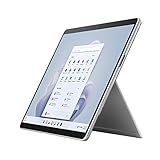Technology has made genealogy work more straightforward. Nowadays, you don’t have to spend hours in libraries or browsing a stack of old books and dusty records. With the advancement of the internet, online databases, social media, and digital devices, you can connect generations most easily.
Top Rated Budget Laptops
Last update on 2025-03-30 / Affiliate links / Images from Amazon Product Advertising API
As a genealogist, you don’t require a high-end workstation or a gaming laptop; instead, you should focus on something else. This post will talk about the best laptops for genealogy in 2024. Also, we will discuss what we should consider before buying one.
If you’re in a hurry, check out our top choices:
- Apple MacBook Air (for
 )
) - LG Gram 14 (for
 )
)
Best Laptops for Genealogy Research in 2024 – Buyer’s Guide
Genealogists obtain information about a family to demonstrate the kinship and pedigrees of its members. They research through historical records, genetic analysis, and other records with oral interviews. That’s why they have to work on the go often. While keeping that in mind, you should choose a 13-15-inch laptop because it is usually lightweight and portable, ideal for carrying around. Moreover, a touch-enabled notebook would be best as you can also use it as a tablet.
According to Lisa Louise Cooke, founder of Genealogy Gems, Evernote is a must-have software for genealogists. It allows:
- Taking notes – Make notes with a touch-enabled laptop on the go.
- Web clipping – You can take screenshots of any web page or document.
- OCR (Optical Character Recognition) – You can search keywords in the web clipping.
- Compatibility: You can sync data among all of your devices.
You can also watch the following video for more information.
You need to choose an Intel Core i5 or its counterpart AMD processor for smoother working. If you can spend on an Intel Core i7 or equivalent AMD Ryzen processor, that would be perfect; it won’t slow down your work even with multitasking.
Don’t forget about computer memory, which also plays a vital role in multitasking and heavy web browsing. Shoot for at least 8GB RAM for your genealogy laptop.
Regarding storage, I recommend at least a 256GB PCIe SSD. It not only makes your laptop faster but also enhances battery life. And you know, battery life is essential for those working primarily on the road.
I don’t recommend a laptop with a dedicated GPU unless you’re into heavy graphics work. A dedicated GPU will cost you a lot of battery life.
General FAQs
Q: What is the best laptop for genealogy research?
A: There is no single answer to this question because it depends on your needs and budget. However, for the safer side, you can go with a laptop with a minimum of 8GB RAM, an Intel i5 or i7 processor, and at least 256GB of storage.
Q: Do I need a dedicated graphics card for genealogy research?
A: No, a dedicated graphics card is unnecessary for genealogy research. An integrated graphics card is sufficient for viewing and editing documents.
Q: What is the ideal screen size for genealogy research?
A: A screen size of 13-15 inches is ideal for genealogy research. It provides a good balance between portability and visibility.
Q: How much storage do I need for genealogy research?
A: The amount of storage depends on the size of your genealogy database and the amount of other data you plan to store on your laptop. At a minimum, 256GB is recommended.
Q: When selecting a laptop for genealogy research, should I prioritize portability or performance?
A: This depends on your specific needs. Portability is crucial if you plan to travel frequently and work on the go. However, if you plan to run multiple genealogy programs and work with large databases, then performance should be prioritized.
Q: How much should I expect to spend on a laptop for genealogy research?
A: The cost of a laptop for genealogy research can vary depending on the features and specifications. A budget of $500-$1000 is a good starting point for a computer with decent performance and features.
Q: What operating system is best for genealogy research?
A: Both Windows and macOS are suitable for genealogy research. However, some genealogy software may only be compatible with one operating system, so checking the software requirements before purchasing a laptop is essential.
QUICK OVERVIEW:
Best genealogy laptops at a glance
ACER ASPIRE 5 CHEAPEST OPTION |
| View at Amazon |
LENOVO FLEX 5 BUDGET 2-IN-1 |
| View at Amazon |
ACER CHROMEBOOK SPIN 13 BEST CHROMEBOOK |
| View at Amazon |
| ASUS ZENBOOK 13 PORTABLE AND SLIM |
| View at Amazon |
LENOVO YOGA 7i LARGE SCREEN |
| View at Amazon |
ACER SPIN 3 BEST IN MID-RANGE |
| View at Amazon |
ACER CONCEPTD 3 EZEL POWERFUL PERFORMANCE |
| View at Amazon |
APPLE MACBOOK AIR BEST IN MAC |
| View at Amazon |
LG GRAM 14 BEST WINDOWS |
| View at Amazon |
MICROSOFT SURFACE PRO 9 MOST PORTABLE |
| View at Amazon |
Last update on 2025-03-11 / Affiliate links / Images from Amazon Product Advertising API
Best Laptops for Genealogy Research in 2024 – Reviews
1. Acer Aspire 5 (Cheapest Laptop for Genealogy in 2024)

Weight: 3.88 lbs | Processor: Ryzen 5 5500U @4.0GHz | GPU: AMD Radeon | Memory: 16 GB | Storage: 512GB PCIe SSD | Screen: 15.6-inch , 1920 x 1080 | Battery Life: 11-hours | OS: Windows 11 Home
If you already own a tablet or don’t want to spend much money on your laptop, the Acer Aspire 5 is our first recommendation. However, it’s not a touch-enabled notebook, but it’s lightweight and portable, which makes it ideal for genealogists.
The Acer Aspire 5 offers a 15.6-inch full HD IPS screen with ComfyView and anti-glare coating. It’s ideal for reading, watching videos, or internet browsing. Also, the larger display size allows you to work with multiple programs simultaneously.
This budget laptop is designed with an AMD Ryzen 5 5500U Hexa-Core processor with 16GB memory and 512GB PCIe SSD storage. The performance is smooth; it can compete with the Intel Core i7-1160G7. It doesn’t matter what programs you’ll run; as a genealogist, you won’t face any performance issues.
Aspire 5 is made of an aluminum metal body that looks professional and provides higher durability. On top of that, its battery life is also excellent; it can provide up to 11 hours of backup with a single charge. Many connectivity options allow connecting an external monitor, storage devices, or other peripherals easily.
Some latest features, such as a backlit keyboard and USB Type-C, are also available, which makes life easier. Overall, it’s a good laptop in the budget range, which could be a considerable choice for a genealogist in 2024.
PROS
- Good quality display
- Impressive performance
- Sweet battery life
- Portable and slim design
- Metal body
- Lots of connectivity options
CONS
- No touch display
2. Lenovo Flex 5 (Best Budget Laptop for Genealogy Research)

Weight: 3.41 lbs | Processor: Ryzen 5 5500U @4.0GHz | GPU: AMD Radeon | Memory: 16 GB | Storage: 512GB PCle SSD | Screen: 14-inch touch , 1920 x 1080 | Battery Life: 10-hours | OS: Windows 11 Home
Powered by AMD Ryzen 5 5500 processor, 16GB memory, and 256GB storage, the Lenovo Flex 5 could be an incredible option for Genealogists on a budget. It’s a 14-inch convertible notebook backed with a full HD touch display; it’s versatile and handy.
With the 360-degree convertible design, you can use this laptop in many styles, such as a tent, laptop, or tablet. Also, it makes using this laptop more straightforward; you can work much faster and more efficiently. Lenovo has also included a digital pen with this notebook; you can take quick notes on the go.
Lenovo Flex 5 has a privacy shutter and fingerprint sensor to ensure higher security. The webcam and sound quality are fantastic; it features a full HD camera with two 2W speakers and Dolby Audio. Also, the backlit keyboard and fast charging features are available. You can use this buddy for a whole day without worrying about charging; it’s a dependable notebook.
This notebook has been tested up to 25,000 times for durability with its 360-degree rotatable hinges, which makes it reliable. Also, there are enough connectivity options available.
Overall, Lenovo Flex 14 is a great 2-in-1 laptop for genealogists in the budget range, offering touchscreen, portability, performance, and longer battery life.
PROS
- Full HD touchscreen
- Impressive performance in budget
- Stylus included
- Fingerprint sensor
- Rapid Charge Boost
- Convertible design for versatile use
- Ideal battery backup
CONS
- Glossy screen
- Mediocre pen
3. Acer Spin 713 (Best Chromebook for Genealogists in 2024)

Weight: 3.02 lbs | Processor: i5-10210U @4.20 GHz | GPU: Intel UHD | Memory: 8GB | Storage: 128GB SSD | Screen: 13.5-inch touch , 2256 x 1504 | Battery Life: 12-hours | OS: Chrome OS
Before we talk further, I want to tell you something important about Chromebooks. Chromebook is primarily designed for online applications; therefore, you can’t run any Windows or Mac Applications on it. However, many alternatives are available for all software; even Chromebooks support Android applications.
If you’re using other Windows software such as Adobe Photoshop, Microsoft Office, or other powerful software, Chromebook is not for you.
The Acer Spin 713 is only suggested for those looking for a budget notebook for browsing the internet, managing data, or taking notes. However, compared to the other Windows laptops, there is no compromise in the performance; the OS is the only downside.
First, it comes with an Intel Core i5-10210U processor along with 8GB memory and 128GB SSD storage. The processing power it can handle is impressive; you can run multiple applications simultaneously. Moreover, it has a 13.5-inch touch display with 2K resolution and a stylus, which provides an enthralling drawing or note-taking experience. Another interesting thing about its screen is that it has a +18% extra screen height, offering more work area.
The build quality is also premium, as it incorporates an aluminum chassis that ensures higher durability.
Again, this Chromebook is a brilliant choice regarding performance, display quality, durability, and battery life. The only problem is ChromeOS, which has limited functionality compared to Windows or MacOS.
PROS
- Dazzling 2K touch display
- It comes with an Acer Stylus
- Potent hardware configuration
- Fantastic durability with aluminum chassis
- Convertible design
- Brilliant battery life
- Latest USB Type-C port available
CONS
- Limited OS functionality
4. Asus ZenBook 13 (Portable and Slim Laptop for Genealogy Research)

Weight: 2.51 lbs | Processor: i7-1165G7 @ 4.7GHz | GPU: Intel Iris Xe | Memory: 16 GB | Storage: 512GB PCle SSD | Screen: 13.3-inch OLED , 1920 x 1080 | Battery Life: 16-hours | OS: Windows 11 Pro
The Asus ZenBook 13 is an ultra-slim laptop with a NanoEdge bezel and OLED display. You can carry it around without any fatigue. The display quality is mesmerizing because it can deliver ultra-sharp colors and sharpness. The only downside is it doesn’t support touch.
Asus ZenBook 13 is designed with an Intel Core i7-1165G7 processor, 16GB memory, and 512GB PCIe SSD storage, which provides snappy performance. The processing power is quite impressive, especially considering its compact form factor.
The design is very lightweight and compact. It features Asus’s innovative NumberPad. This machine also accompanies a backlit keyboard, fingerprint sensor, and Thunderbolt 4. Its fast charging technology can also achieve 60% of battery life within 49 minutes.
Genealogists require a lightweight laptop with longer battery life without compromising performance, and this laptop meets them. The touchscreen feature is missing here, although the display quality is outstanding.
PROS
- Superb quality OLED display
- Very portable and lightweight – just 2.5 lbs
- Snappy performance
- Slim and durable design
- Fast charging technology
- Fingerprint sensor
- Thunderbolt 4
- NumberPad
CONS
- No touchscreen
- Slightly noisy
5. Lenovo Yoga 7i (Budget Large 2-in-1 Laptop for Genealogy Research)

Weight: 4.18 lbs | Processor: i5-1135G7 @4.2GHz | GPU: Intel Iris Xe | Memory: 8GB | Storage: 256GB PCIe SSD | Screen: 15.6-inch touch , 1920 x 1080 | Battery Life: 14-hours | OS: Windows 10 Home
Laptops with a large screen make multitasking more straightforward, but usually, they are heavy. That’s why you have to decide as per your requirements. The Lenovo Yoga 7i is the only notebook on this list that offers a 15.6-inch big touch display with a convertible design.
The big screen with the convertible design is a significant advantage here. The screen is supported with full HD resolution and 400 nits of brightness, producing a more precise picture quality and reasonable colors. You can work with multiple applications side by side.
Lenovo Yoga 7i is sculpted from a fully aluminum body, providing a premium, professional look and supreme durability. The fingerprint sensor, Thunderbolt 4, Backlit keyboard, and webcam with privacy shutter are provided for convenience and security.
The weight is also bearable and won’t break your should while carrying.
As a genealogist, you won’t face any performance issues; it has enough muscle to handle your workload. In terms of performance, It comes with an Intel Core i5-1135G7 processor with 8GB memory and 256GB SSD storage. The memory isn’t upgradable in the future, which you should remember.
Overall, if you don’t want to spend much on your laptop, the Lenovo Yoga 7i might be an ideal choice. It has everything that you need as a genealogist. The battery life is also impressive; it can easily last a whole day.
PROS
- Large full HD touch display
- Solid durability with aluminum body
- Convertible design
- Reasonable performance
- Thunderbolt 4
- Fingerprint sensor
- Incredible battery life
CONS
- Soldered memory
- Not for high-end work
6. Acer Spin 3 (Best Laptop for Genealogy Work in Mid-Range)

Weight: 3.31 lbs | Processor: i7-1255U @4.70 GHz | GPU: Intel Iris Xe | Memory: 16GB | Storage: 512GB PCIe NVMe | Screen: 14-inches touch , 1920 x 1080 | Battery Life: 13-hours | OS: Windows 11 Home
Acer Spin 3 laptop is a convertible notebook packed with powerful hardware, which makes it the perfect choice for genealogy professionals. It has everything you need as a genealogist, whether about portability, performance, battery life, or display quality.
This machine accompanies an Intel Core i7-1255U processor, 16GB memory, and 512GB PCIe SSD storage, ensuring seamless operation. Whether you’re doing rigorous multitasking, internet browsing, or just taking notes, this machine fits perfectly in all roles.
As its name suggests, Acer Spin 3 is a convertible laptop. It presents a 14-inch full HD IPS touch panel, which ensures vibrant and crisp image quality. It also features a Stylus, which makes notes taking or drawing easy. Its stylus can be placed inside its pre-made dock, preventing it from losing.
Spin 3 is a lightweight, portable notebook that falls under 3.5 lbs; therefore, you can carry it easily. Additionally, it’s packed with all the latest features, such as a fingerprint sensor, Thunderbolt 4, a backlit keyboard, an HD camera, and AI Noise reduction.
The Acer Spin 3 is a fabulous notebook in mid-range that could be a reliable option for genealogy professionals in 2024.
PROS
- 2-in-1 design with a vibrant and crisp display
- Dependable performance
- It comes with a stylus
- Up to 13 hours of battery life
- Fingerprint sensor
- Thunderbolt 4
CONS
- It slightly gets hot during demanding operations
7. Acer ConceptD 3 Ezel (Powerful and Versatile Laptop for Genealogy Research)

Weight: 3.75 lbs | Processor: i7-10750H @5.0Ghz | GPU: GTX1650 Max-Q 4GB | Memory: 16GB | Storage: 512GB PCIe SSD | Screen: 14-inch touch , 1920 x 1080 | Battery Life: 15-hours | OS: Windows 10 Home
Acer ConceptD 3 Ezel is a convertible laptop with a dedicated GPU and powerful hardware configuration. Its collapsible design is exciting, which allows it to be used in different modes.
Let’s start with its display; it has a 14-inch full HD LED-backlit IPS touch panel supported by 100% sRGB color gamut and Pantone certification. It can deliver highly color-accurate and sharper images, perfect for professionals. It comes with a Wacom AES stylus pen, allowing you to work on the screen like a pen and paper.
This notebook is designed with an Intel Core i7-10750H processor, 512GB SSD, 16GB memory, and Nvidia GeForce GTX 1650 Max-Q GPU, which makes it very powerful. You can throw any software on this laptop; it won’t mind.
ConceptD 3 Ezel features a fingerprint sensor, amber backlit keyboard, Thunderbolt, and Wi-Fi 6 to ensure higher performance and security. However, its hardware is a bit dated, but it’s still not less than a gem while considering its features and performance.
This notebook also fulfills the backup requirements, which is insane for its slim and compact design. The price is undoubtedly higher, but it could be a solid choice if you’re looking for a powerful, compact, and convertible notebook for your genealogy work need.
PROS
- Innovative collapsible design
- Beautiful touch display
- Amber backlit keyboard
- Thunderbolt 3
- It comes with a Wacom Stylus
- Dedicated GPU
- Great battery life
- Outstanding performance
CONS
- A bit dated
- Costly
8. Apple MacBook Air (Reliable and Portable Laptop for Genealogists)

Weight: 2.75 lbs | Processor: Apple M2 | GPU: integrated | Memory: 8GB | Storage: 512GB PCIe SSD | Screen: 13.6-inch , 2560 x 1664 | Battery Life: 15-hours | OS: macOS
There is no doubt MacBooks are expensive, but if you want to invest in a reliable and durable machine, you can choose one. I recommend the MacBook Air instead of the Pro for the genealogist because it has enough gunpowder to handle our workload and won’t drag you down while carrying it for a whole day.
Apple’s MacBook Air is now available with the Liquid Retina display, delivering ultra-sharp and vivid images. However, no touch support is available as usual, which might be a deal breaker for some.
The 4th Gen MacBook Air is designed with an M2 chip, ensuring a robust performance due to up to 8-core CPU and 10-core GPU. The performance is drastically better than the previous Intel Core models. There is a noticeable difference in battery life as well. It can last up to a whole day with a single charge. You can now choose your MacBook Air up to 2TB SSD storage and 16GB memory as per your requirements.
MacBook Air features a 1080p FaceTime HD camera, three-mic array, four speakers, and TouchID, ensuring a secure and immersive user experience.
MacBook Air has two latest Thunderbolt ports, a versatile connectivity solution. However, you have to connect an adapter or hub if you want to use older devices.
You can consider Apple MacBook Air if you’re looking for a long-lasting and reliable laptop for your genealogy work.
PROS
- Fantastic Liquid Retina display
- Satisfying performance
- Sturdy and reliable build quality
- TouchID
- Slim and compact design
- Premium sound and cameras
CONS
- Very costly
- Limited connectivity ports
- No touch supports
9. LG Gram 14 (Best Windows Laptop for Genealogy in 2024)

Weight: 2.75 lbs | Processor: i7-1165G7 @ 4.7GHz | GPU: Intel Iris Xe | Memory: 16GB | Storage: 1TB PCIe SSD | Screen: 14-inch touch , 1920 x 1080 | Battery Life: 14-hours | OS: Windows 10 Home
If you’re more inclined to the Windows OS, the LG Gram 14 could be the best choice in 2024. There are a few reasons; it offers an ultra-lightweight and convertible design with robust performance and excellent battery life.
This model is packed with a 14-inch full HD touch display supported by a 99% DCI-P3 wide color gamut, which makes it more interesting. It can produce precise and crisp color quality, even ideal for professional editors and designers. It also offers an LG Stylus Pen with 4096 levels of pressure sensitivity, tilt detection, and zero stoke, which can deliver a natural drawing and notes taking experience.
This machine is fueled by the Intel Core i7 1165G7 processor, 16GB memory, and 1TB SSD storage, which is enough for complicated multitasking or editing work. Altogether, you won’t face any performance issues while working.
The portable laptop offers a convertible design, making it usable in different modes. The build quality is also excellent because it’s certified with the MIL-STD-810G standard. Some of the latest features include a fingerprint sensor, a backlit keyboard, and Thunderbolt 4. Also, its battery life is fantastic; it can easily last up to 14 hours of mixed usage.
LG Gram 14 offers a broader trackpad, enhanced keystrokes, and expanded keycaps, providing a smoother typing and touch experience. The sound quality is also impressive with the DTS: X Ultra and 2W speakers.
Overall, if you’re looking for a versatile, powerful, portable, and long-lasting laptop for your genealogy work needs, the LG Gram 14 might be the best choice.
PROS
- Beautiful touch display with 99% DCI-P3
- Convertible design
- LG Stylus is included
- Marathon battery life
- Ultra-lightweight and handy
- Extensive connectivity options
- Thunderbolt 4
- Fingerprint sensor
CONS
- Expensive
- No dedicated GPU
10. Microsoft Surface Pro 9 (The most Portable Notebook for Genealogists)

Weight: 1.94 lbs | Processor: i7-1235U @4.4Ghz | GPU: Intel Iris Xe | Memory: 32GB | Storage: 1TB PCIe SSD | Screen: 13-inch touch , 2880 x 1920 | Battery Life: 12-hours | OS: Windows 11 Home
The Microsoft Surface Pro 9 is the ultimate choice if you prefer portability. It’s a tablet cum laptop that doesn’t compromise features and performance. The Surface Pro 9 has a modular design that allows connecting a keyboard cover to turn it into a full-size laptop. However, you must purchase the stylus and keyboard cover separately, making this machine very costly.
The Microsoft Surface Pro 9 offers a PixelSense Flow display with a 120Hz refresh rate, Dolby Vision, and 2880 x 1920 pixels of resolution; therefore, it can deliver life-like image quality and vivid colors. You can use this laptop for taking notes, editing, designing, or drawing without hesitation.
With the 12 hours of battery backup, you can feel free for a whole day. It’s impressive for this compact and slim machine. If we talk about the camera and sound quality, it also might impress you because it features full HD lenses and 2W stereo speakers with Dolby Atmos.
Microsoft Surface Pro 9 is crafted from an aluminum metal unibody which entrusts reliable build quality and a professional look. The port availability is also good; it features two Thunderbolt 4, a surface connect port and a 3.5mm headphone jack.
The higher price might be a deal breaker for some, especially since its accessories must be purchased separately. Otherwise, the Surface Pro 8 is a fantastic option that offers portability and performance on the same table without compromising battery life.
PROS
- Incredible PixelSense Flow display
- Strong performance
- Decent battery life
- Detachable design
- Utmost durability with a metal unibody
- It comes with Thunderbolt 4
- Good cameras and sound quality
CONS
- Very costly
- No accessories included
Best Computers for Genealogical Research in 2024
Genealogists don’t require a potent laptop; a budget notebook with decent performance, portability, and battery life is enough. A touchscreen could be beneficial since genealogists often work on the go, which could help them take essential notes easily.
We have discussed different kinds of laptops on this list while considering all budgets and requirements, and hopefully, you have found a suitable one for you. Thanks for reading!









Some points in this article are valid. However, as a genealogist, I disagree that a more expensive laptop is a requirement for a serious genealogist, and think that the best laptop is one with a large screen and one with enough memory to run Excel quickly. You need one with the ability to have several screens open at one time, as many genealogists have several files open to compare. Also the large screen is necessary if you want to do splitscreen comparisons.